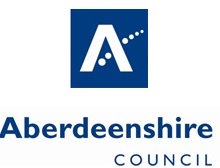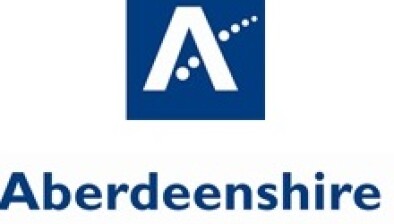Aberdeenshire Council agrees 4% council tax increase

Council tax in Aberdeenshire will rise by 4% in the coming year, as Aberdeenshire Council agreed its full 2023/24 budget last week.
Papers with saving proposals were posted online last week by the council, which outlined a range of financial savings across all services to bring spending in line with the available budgets.
Last month, councillors agreed to apply a 4% increase in Council Tax for the year ahead, one of the lowest increases currently being applied in Scotland. Council Tax brings in just around 25% of the income that councils use to fund the delivery of their services.
At the start of the 2023/24 budget process, officers estimated that the budget gap was around £66 million adrift of where it needed to be. Papers presented to the committee showed how a balanced budget could be achieved, reflecting the work and scrutiny applied to the budget setting process.
Communities were warned that implementing the proposals will not be without change being felt on the ground, however councillors were keen to point out that protecting frontline services was a priority.
After debate and alternative proposals, they voted 42/22 in support of a revenue budget of over £711m to invest in local services for the coming year, along with a Capital Programme of over £115m.
Under the agreed Capital Plan, there was strong commitment to several education projects including the new Peterhead Community Campus, new-build primary schools in Fraserburgh and Stonehaven and an expansion of free school meals.
A further commitment was given to additional affordable housing and disabled/elderly housing adaptations, while the significant Levelling Up funding for projects at Macduff and Peterhead was also warmly welcomed.
Services tabled savings across the board, except from within Children’s Services where officers and members agreed that protecting the most vulnerable was a priority.
Cross-council savings will include procurement efficiencies from a review of off-contract spend and existing contract arrangements, pro-active management of all vacant posts through the year, savings from digital transformation and estate rationalisation across all council properties.
The council will also aim to achieve £2m in savings through voluntary severance, £3m through a review of its Loans Fund and will utilise reserves of £900,000.
Directorate savings made within the budget include:
- Business Services (£2.8m savings) inc.
- £220,000 - Removal of additional cleans of public toilets required due to Covid
- £700,000 - Review of single person discount for Council Tax
Infrastructure Services (£6.4m savings) inc:
- £2.66m - Diverting residual waste from landfill to Energy from Waste facility
- £635,000 - Reduce financial support for fixed route subsidised bus services
Education & Children’s Services (£4.7m savings) inc:
- £500,000 - Under-utilised budgets in Support for Learning Clusters offered as saving
- £950,000 - Reduction in primary school depute head teacher entitlement through primary staffing formula review
Speaking on behalf of the opposition, Councillor Gwyneth Petrie presented an alternative budget which made various changes to the revenue and capital budgets, together with greater use of reserves. She reminded the council of the opposition’s proposal had to increase Council Tax by 6% to reduce the impact on service cuts. The amendments proposed included maintaining all fixed route bus services and ensuring full retention of the Pupil Equity Fund. They also proposed several new schemes including Energy Generation Projects funded by a £837,000 Transformation Reserve.
She commented: “We’ve all had to take difficult decisions in the run up to today, but what we propose, we believe, is fair and forward-thinking.”
During the cross-chamber debate, councillors made their cases for both budgets, recognising the challenges facing all services, while focusing on the need for difficult decision to be made in the face of extremely challenging economic times.
Councillors said it was important that the public understand the complexity of setting local authority budgets and stressed that while the proposals taken are considered deliverable, residents are likely to see changes.
Speaking in the chamber, council leader Cllr Mark Findlater described the administration’s proposal as a “responsible, measured budget” which helps the council build for the future.
He said: “We are a large and complex organisation that truly delivers cradle-to-grave services. Next year, we will spend over £711 million on those services from care, education, roads, waste, leisure, social work, landscaping, streetlights and car parks.
“We are here in times of difficulty, be that storms, pandemics, natural disasters or economic challenges. We work with our partners in order to deliver the best outcomes for our communities. Our teams work tirelessly to ensure Aberdeenshire remains the wonderful place that we are fortunate enough to call home. So, to our partner agencies and our workforce, I say thank you for everything you continue to do, it is never taken for granted.
“Teams from all services have recognised the immense challenge facing us and stepped up to find savings, reduce spend and deliver efficiencies to support the delivery of a balanced budget. These savings can be achieved but residents will see the changes, that is inevitable. We have tried really hard to reduce the impact on communities, reflect our priorities, and put in mitigation wherever possible.”
Deputy leader Councillor Anne Stirling added: “Our future is all about place – we speak about that a great deal but what does it actually mean? For me, it is about seeing all our services at the most local level – understanding the impact a school has within its local community, how we maintain roads in the winter to ensure that the school remains open; fully appreciating the impact of agreeing to housing development in an area where there is little public infrastructure.
“The critical part of a place-based future is full engagement with the people that live in that place – so they are able to shape decisions that will impact directly on them and are enabled to make improvements with our support and guidance.
“It is all too easy to get caught up in the savings and changes to services we have to make. But Aberdeenshire Council will continue to provide those core, universal services that support our communities, keeping them safe, providing the best start in life for our children, caring for our elderly and supporting the economy.”





